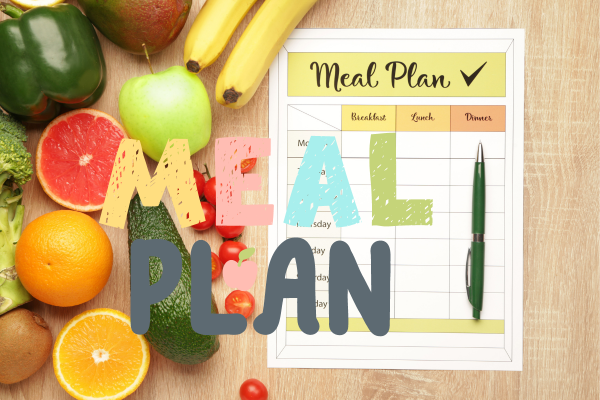Mastering Healthy Meal Planning for a Balanced Lifestyle – By Bhanuka – eLanka

Maintaining a balanced diet can often feel like an elusive goal in the hustle and bustle of modern life. However, healthy meal planning is a powerful tool that can simplify this process and lead to long-term wellness. This guide will explore the benefits of meal planning, provide practical tips, and offer strategies to help you create nutritious and delicious meals consistently.
The Benefits of Healthy Meal Planning
Improved Nutritional Intake: Planning your meals ensures you include a variety of nutrient-dense foods, promoting a balanced intake of essential vitamins and minerals.
Time and Money Savings: By preparing meals in advance, you can save time on daily cooking and reduce impulsive purchases, ultimately lowering your grocery bills.
Reduced Stress: Having a clear meal plan eliminates the daily dilemma of deciding what to eat, reducing stress and making mealtime more enjoyable.
Better Portion Control: Meal planning allows for precise portion sizes, helping to manage calorie intake and prevent overeating.
Enhanced Weight Management: Consistent, balanced meals can support weight loss or maintenance goals by providing structure and preventing unhealthy snacking.
Steps to Effective Meal Planning
Set Your Goals: Determine your dietary objectives, whether it’s weight loss, muscle gain, or simply maintaining a healthy diet. Your goals will guide your meal choices.
Create a Weekly Menu: Plan a menu that includes a variety of proteins, vegetables, fruits, whole grains, and healthy fats. Aim for balanced meals that meet your nutritional needs.
Make a Shopping List: Based on your menu, create a detailed shopping list. Stick to your list to avoid buying unnecessary items.
Batch Cooking: Prepare large quantities of staple foods like grains, proteins, and vegetables. Store them in portioned containers for easy assembly during the week.
Include Snacks and Hydration: Plan healthy snacks to keep your energy levels stable throughout the day. Don’t forget to include hydration goals as part of your meal planning.
Tips for Successful Meal Planning
Start Simple: Begin with easy-to-make recipes and gradually introduce more complex dishes as you become comfortable with the process.
Use Seasonal and Local Produce: Incorporating seasonal fruits and vegetables not only enhances the flavor but also provides nutritional variety and supports local farmers.
Diversify Your Menu: Prevent meal monotony by varying your recipes and trying new ingredients. This keeps your meals exciting and nutritionally diverse.
Prepare for Emergencies: Stock up on healthy, non-perishable items like canned beans, nuts, and frozen vegetables for days when cooking fresh meals isn’t possible.
Stay Flexible: Life can be unpredictable. Allow some flexibility in your meal plan to accommodate spontaneous changes in your schedule.
Sample Meal Plan
Breakfast: Overnight oats with chia seeds, almond milk, fresh berries, and a drizzle of honey.
Lunch: Grilled chicken salad with mixed greens, cherry tomatoes, cucumbers, avocado, and a lemon-tahini dressing.
Dinner: Quinoa and black bean stuffed bell peppers with a side of steamed broccoli.
Snacks: Greek yogurt with a handful of nuts, apple slices with almond butter, and a green smoothie made with spinach, banana, and flaxseeds.
Overcoming Common Challenges
Lack of Time: Dedicate a specific time each week for meal planning and preparation. Sundays are popular for prepping meals for the upcoming week.
Boredom with Meals: Experiment with different cuisines and cooking techniques. Consider themed nights, such as Italian night or taco Tuesday, to keep things interesting.
Adapting to Dietary Restrictions: If you have specific dietary needs, research recipes and meal ideas that cater to your restrictions. Many resources and communities offer support and inspiration.
Staying Motivated: Remind yourself of your health goals and the benefits of meal planning. Tracking your progress and celebrating small victories can help maintain motivation.
Conclusion
Healthy meal planning is a valuable practice that can transform your approach to eating, leading to better health and greater convenience. By setting clear goals, preparing in advance, and embracing variety, you can enjoy nutritious meals without the daily stress of decision-making. Start your meal planning journey today and experience its positive impact on your lifestyle.







